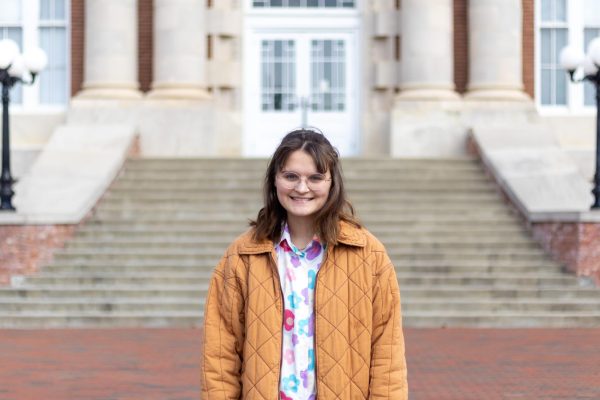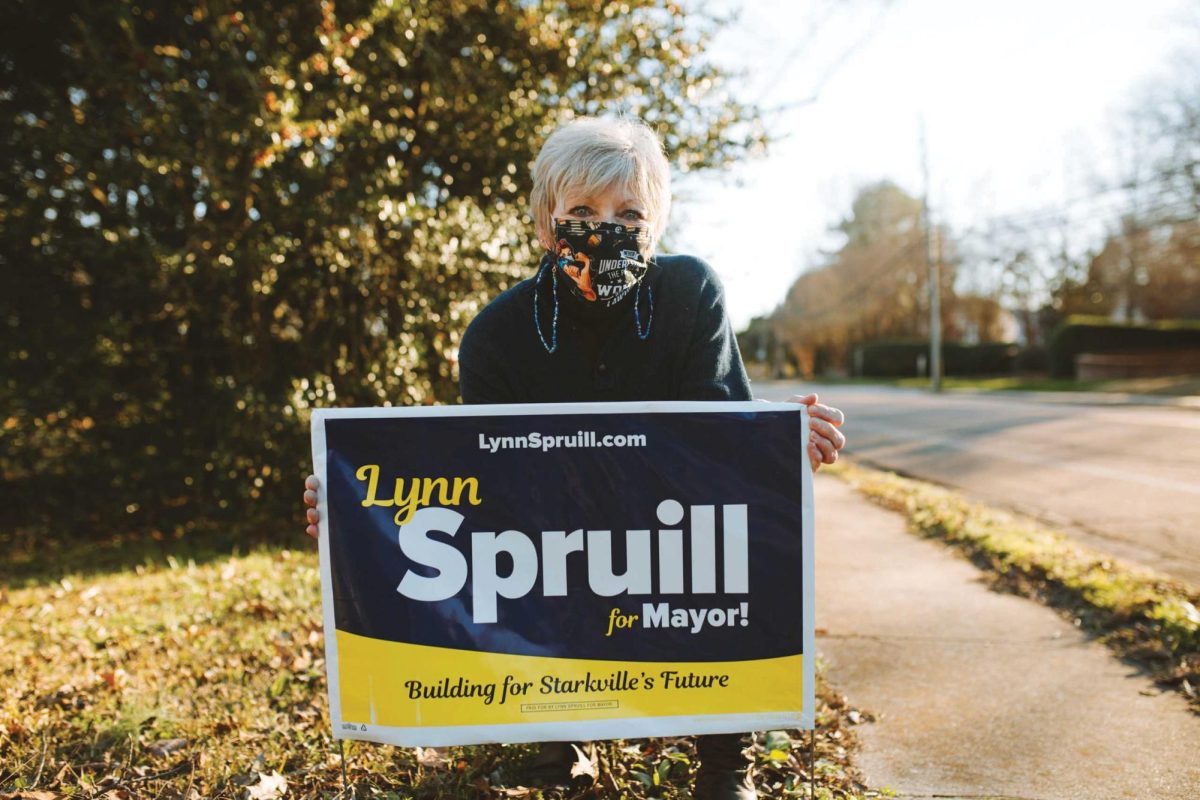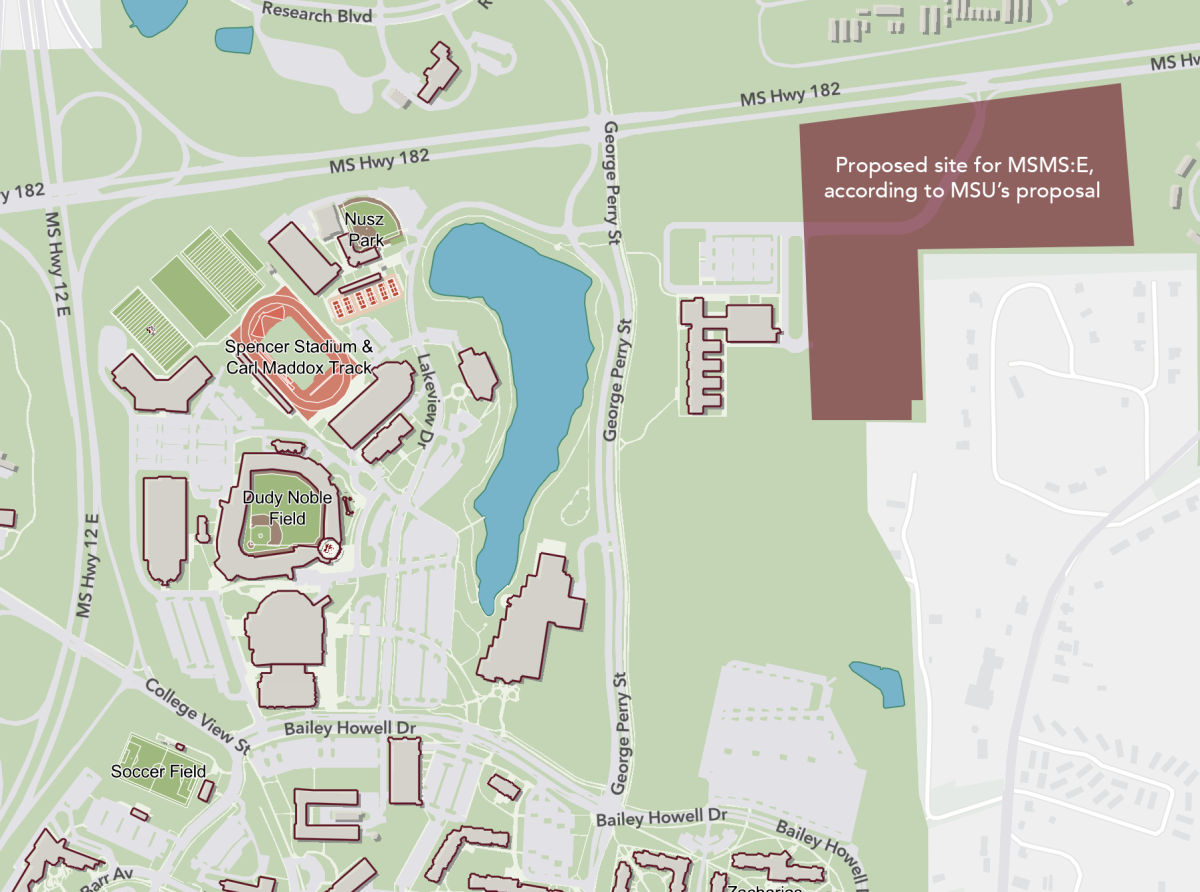Mississippi State University research was featured on the cover of the British scientific journal Nature this week after researchers discovered a new parasitoid wasp species while studying fruit flies in Starkville and on the MSU campus.
Matthew Ballinger, an associate professor in the Department of Biological Sciences, and his PhD student, Logan Moore, encountered the parasitoid wasp species while studying fruit fly infections in Ballinger’s lab.
During the reproduction cycle, the wasp species attacks fruit flies and injects their eggs inside the flies’ bodies. The egg matures inside the fruit fly until it reaches adulthood. When the wasp hatches, it bursts out of the fruit fly, leaving the fruit fly to die shortly after.
Previously documented species of parasitoid wasps attacked fruit fly larvae, but no record of any parasitoid wasp that attacked adult fruit flies existed.
Researchers must view the entire cycle under a microscope because both species are too small for the naked eye to see details.
After months of research and verification, Ballinger and Moore published an article in Nature in early September that proposed details and a name for the new species. A picture taken by Ballinger of the wasp attacking a fruit fly can be seen on the cover of the Sept. 26 issue of the journal.
Biological Sciences Department Head Angus Dawe described how rare it is for an article to be published in Nature.
“You ask any scientist about the two top journals in science, they are Science and Nature,” Dawe said. “Those are the two main ones, so we don’t get publications in those journals very often.”
Ballinger and Moore collaborated for several years before they discovered the parasitic wasp. They first met when Moore was an undergraduate at the University of Victoria in British Columbia, Canada, while working in the lab of Steve Perlman, a research adviser at the university. In honor of him, they named the new species of wasp Syntretus perlmani.
Ballinger will continue to work with the wasp in his lab this year. His lab is funded by the National Science Foundation’s five-year CAREER grant, which equals $805,682, while he studies the bacteria Spiroplasma in fruit flies. This grant allows Ballinger to have well-funded research for an extended period despite being relatively new to the field as a faculty member and career researcher.
Ballinger accepts a few new graduate and undergraduate students into his lab at the beginning of each semester. He said it takes time for students to build up research and lab skills.
“Students who stick around for a year and a half or two years, by the end of it, really have developed some nice skills that they can either put on a resume,” Ballinger said, “or maybe they’ve developed enough data that they can contribute to a manuscript and get published.”
Moore graduated with his PhD from MSU this year and is now living in Georgia as he prepares for his postdoctoral research. His research will focus on parasitoid wasps and symbiosis.
Moore recommends that anybody interested get involved in research by contacting their professors.
“Reach out to your professors and demonstrate even a general interest in what they study,” Moore said. “You have a very good chance of being able to join that lab and do some very cool things, and it’s going to give you a very clear idea if that’ll be your passion or not.”
Ballinger’s lab is not the only lab on campus doing exciting research. Dawe said the Department of Biological Sciences has an advisor, Brandy Roberts, who specifically works with undergraduate students to connect them with research opportunities.
“Students will sometimes come talk to her and say, ‘Hey, I’m interested in getting into research,'” Dawe said. “She can say, ‘Well, you need to go talk to these three different people.’ It does require some legwork from the student.”
Every department and many professors are doing their own branches of research. As Moore said, the most reliable way to get involved, regardless of department, is to contact any professors conducting research. Many departments have lists of their professors and what kinds of research they are doing on their website.
Dawe said that students need to be willing to take the initiative to get involved in research.
“You sit back and wait for something to happen in life, in general, it doesn’t always work out,” Dawe said. “You have to go and do these things. That’s true for any professional endeavor, whether you want to be in science or you want to be a journalist. You have to put yourself in a position to take the opportunities you are given.”














